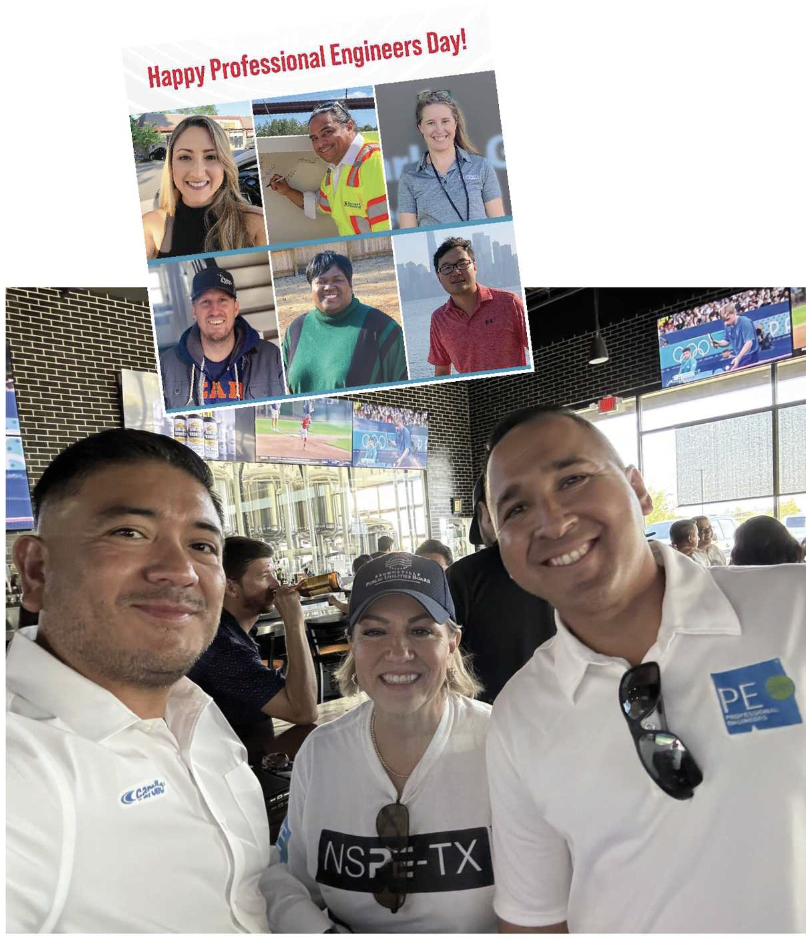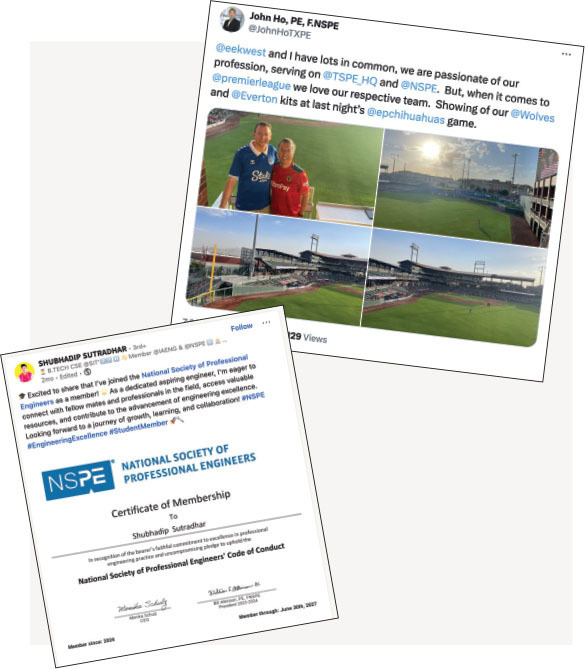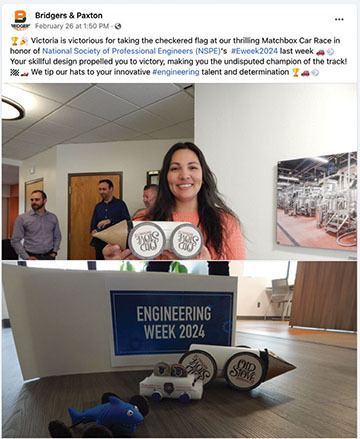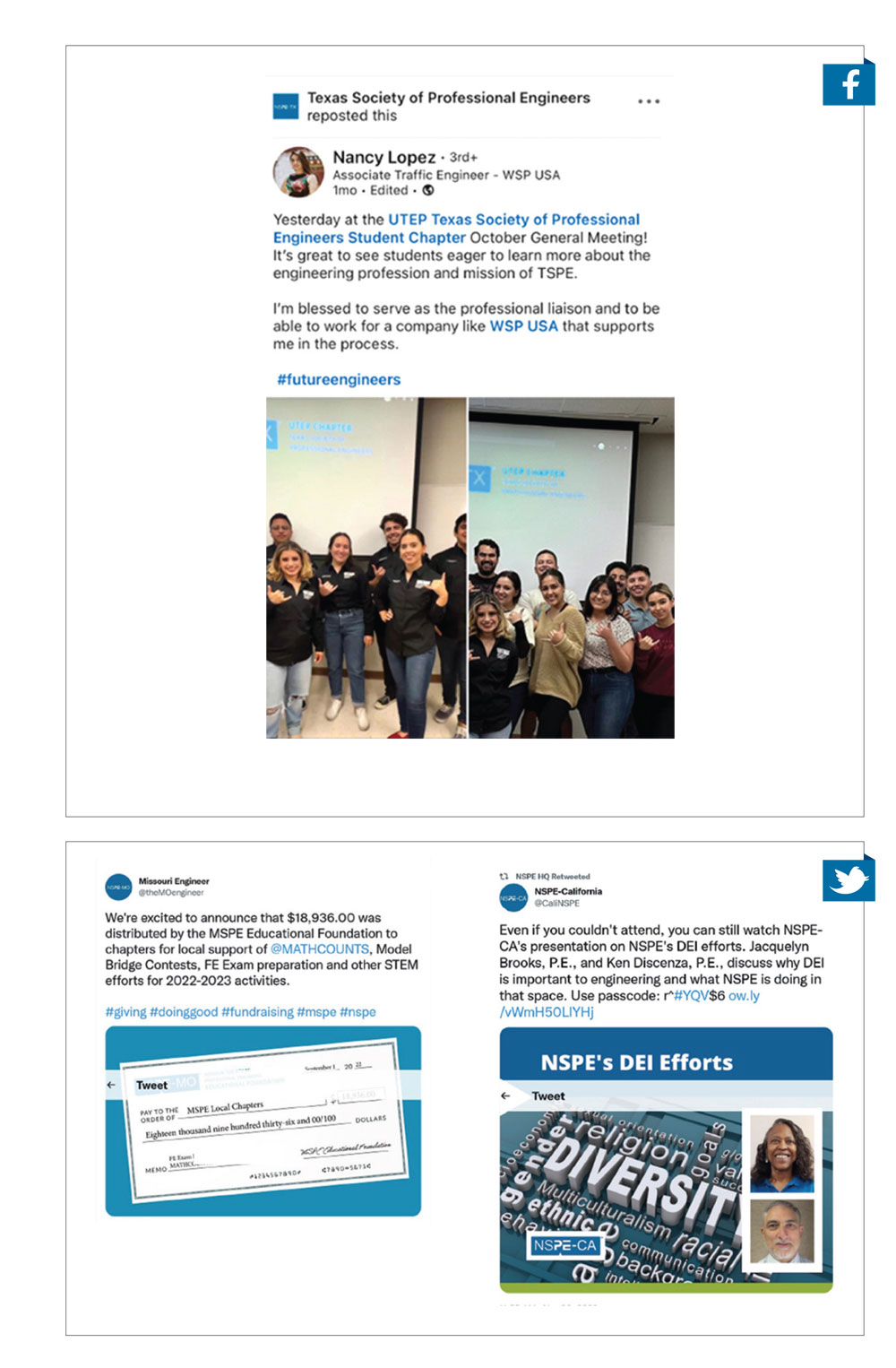November/December 2018
You Said It
Occupational Licensing
The Federal Trade Commission just released a report on occupational licensing. Surprisingly, there are still many NSPE members who are not fully aware of the recent legislative threats to professional engineering licensure, especially if a member isn’t actively engaged in their state-level activities. Fortunately, through the collective efforts of NSPE and its state partners, most of these efforts have been rebuffed. As the saying goes, “What can be legislated in, can be legislated out.”
This report is a good read and deals primarily with the issue of mobility and portability.
Tim Austin, P.E., F.NSPE
Wichita, KS
The confusion on the who, what, when, where, and how engineering is provided to and on behalf of the public reinforces the need to keep professional licensing relevant to an ever-changing and complex world.
It is about public safety and professional ethics.
Sharon Zimmerman, P.E.
Kalama, WA
At least in my view, there is a considerable difference between “occupational licensing” and “professional licensing.” The former is more related to general regulation to require individuals to show competence in their chosen career: contractor, cosmetologist, skilled trades, etc. These are all based on protecting the public from themselves and the inappropriate acts of some bad players in that chosen career area. The latter rises to another level, professionals who are charged by law or ethical standards to protect the public health, safety, and welfare. Professional licensing is more related to learned professions, such as medical professionals, legal professionals, engineering professionals, etc. Such professionals, if not appropriately regulated and licensed, could significantly impact the public health, safety, and welfare.
Having said that, the FTC’s report should not be dismissed. Licensing, when used to protect the public well-being, is good public policy. However, it should not be used to create unnecessary barriers to protect a limited group with the intent of controlling a sector of the market. States and public agencies should be looking to protect the public, not a business or corporate interest.
David Dexter, P.E., F.NSPE
Tipp City, OH
Sometimes we, as individuals and organizations, can benefit from the positive and negative views of outsiders. Scottish poet Robert Burns said it this way: “O wad some power the giftie gie us to see oursels as ithers us!” (Modern English translation: “Oh would some Power the gift give us, to see ourselves as others see us.”)
In that spirit, consider the article released by Liberty University in 2015 and authored by law professor and former judge Paul M. Spinden. “The Enigma of Engineering’s Industrial Exemption to Licensure: The Exception that Swallowed a Profession” is historically based, broad, deep, and well documented. (Others have cited it in various blogs—all should read it). As suggested by its title, this article does not present engineering in a laudatory manner.
For decades I have been increasingly frustrated with engineers complaining, in Rodney Dangerfield style, that they “get no respect” and claiming that they are not paid “what they are worth” and that professional societies “cost too much and do nothing.” Yet, the majority of engineers do not seek licensure, “stay away in droves” from joining and actively participating in professional societies, and exemplify passiveness.
We are our worst enemies.
Stuart Walesh, P.E., F.NSPE
Valparaiso, IN
Devon Seal, P.E., the president-elect of the Ohio Society of Professional Engineers, shares her advice for graduating engineering students...take the Fundamentals of Engineering Exam!
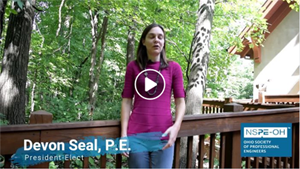
MORE Issue 1 2025 ARTICLES
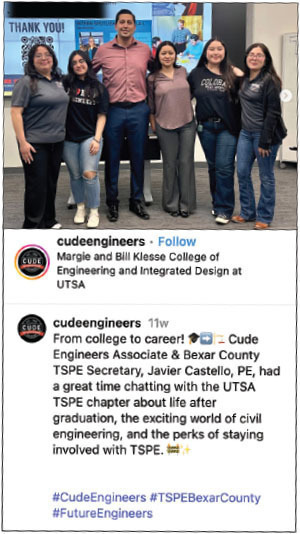
STAY CONNECTED WITH THE PROFESSION AND COLLEAGUES IN NSPE’S ONLINE COMMUNITIES FOR PR
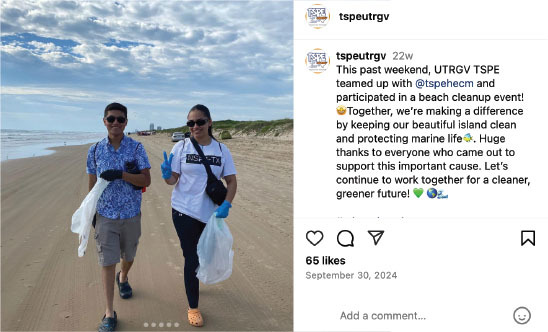
STAY CONNECTED WITH THE PROFESSION AND COLLEAGUES IN NSPE’S ONLINE COMMUNITIES FOR PR

Spring 2023
You Said It

Winter 2022
You Said It


 Volunteering at NSPE is a great opportunity to grow your professional network and connect with other leaders in the field.
Volunteering at NSPE is a great opportunity to grow your professional network and connect with other leaders in the field. The National Society of Professional Engineers (NSPE) encourages you to explore the resources to cast your vote on election day:
The National Society of Professional Engineers (NSPE) encourages you to explore the resources to cast your vote on election day: